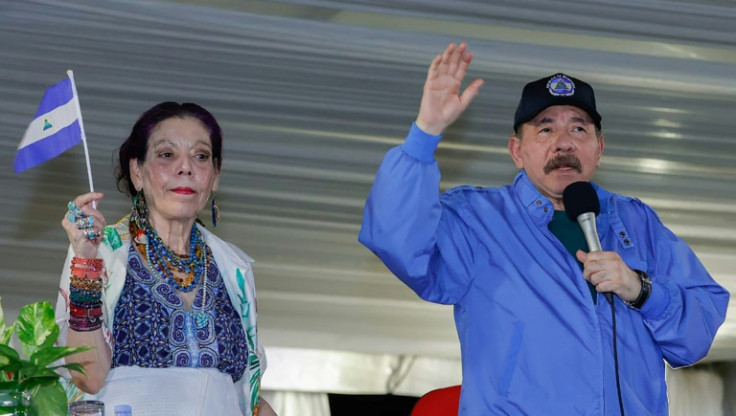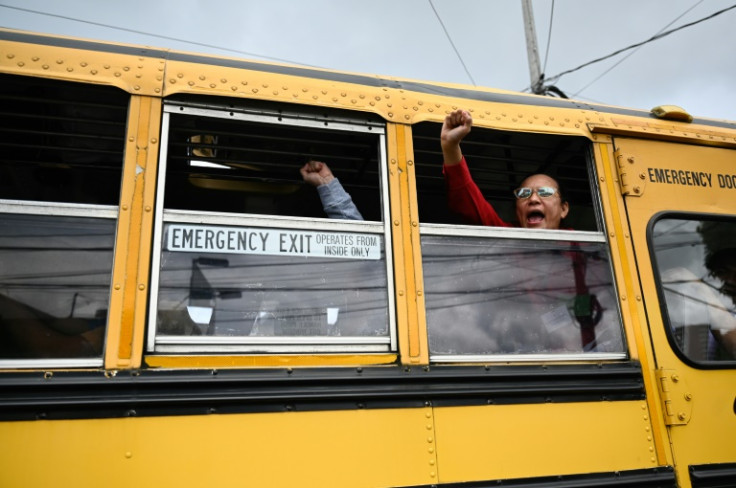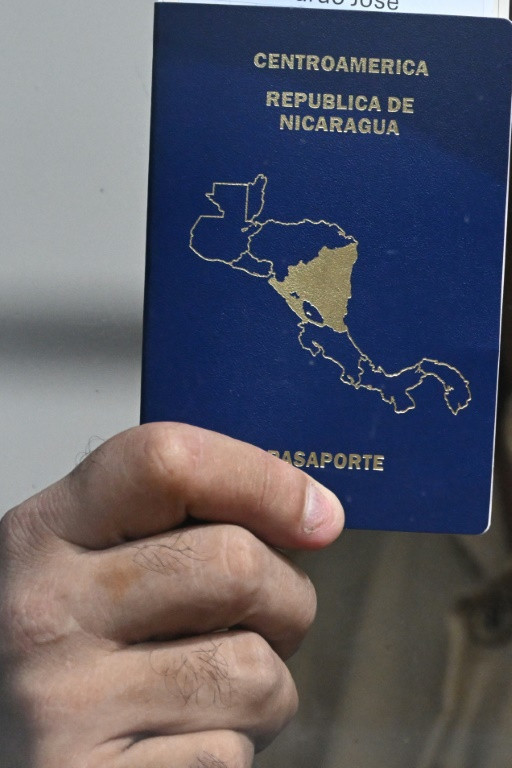
Nicaragua on Thursday freed 135 political prisoners who flew to safety in Guatemala in the latest such deal negotiated by the United States with strongman Daniel Ortega.
The United States described the release of the prisoners on humanitarian grounds as the result of months of pressure and said it did not intend to let up on Ortega.
"Thank you to everyone for my freedom. Long live a free Nicaragua!" Francisco Arteaga told reporters as he raised his fist from a bus window on landing in Guatemala City.
Arteaga said he had been jailed for his social media postings about Ortega's actions against the Catholic Church, which the leftist leader has increasingly treated as a threat.
The White House said that the prisoners -- all Nicaraguan citizens -- included members of faith organizations, students and others viewed by Ortega and his team as a "threat to their authoritarian rule."
They will have the opportunity to seek to move to the United States, which plans to support them during their stay in Guatemala, whose reformist President Bernardo Arevalo has worked closely with Washington on the hot-button political issue of migration.
"We urge the immediate and unconditional release of all political prisoners and prisoners of conscience in Nicaragua," Secretary of State Antony Blinken said in a statement.
"The Nicaraguan people want and deserve a restored democracy where all can exercise their human rights and fundamental freedoms, free from fear of persecution or reprisal."
The latest move follows the mass release of more than 200 prisoners in February 2023 who were flown to the United States.
The former prisoners have largely welcomed being able to leave, although some human rights activists view Ortega's move cynically, seeing him as trying to get rid of perceived opponents while at least attempting to curry favor with Washington.
Eric Jacobstein, a senior State Department official involved in the latest release, said that "the Nicaraguan regime got nothing from this."
"I do want to emphasize that this does not signal a change in our policy toward this repressive regime," Jacobstein told reporters.
Ortega and his allies "continue to suppress democracy, fail to respect the human rights of Nicaraguans and deepen Nicaragua's collaboration with authoritarian governments," he said, calling Nicaragua's growing relations with Russia and China "extremely concerning."
The latest release includes 13 members of Mountain Gateway, an evangelical Christian group based in Texas, the White House said.
Nicaraguan authorities earlier this year accused members of the group, which conducts mass gospel campaigns as well as humanitarian work, of money laundering and organized crime.
Mountain Gateway strongly denied the charges, saying that Nicaraguan authorities were able to review its budgeting.
Ortega, a 78-year-old former leftist guerrilla who battled US-backed forces in the 1980s, returned to power in 2007 and initially had been seen as more moderate.
But he has since lifted presidential term limits, seized control of all branches of government and led a sweeping crackdown on groups including the Catholic Church and NGOs seen as threats to his rule.
More than 5,500 NGOs -- most recently Save the Children -- have been shut down since Ortega was spooked in 2018 by mass protests in which the United Nations estimates that 300 people died.
The freed prisoners, while generally in good health, were being offered both physical and psychological support in Guatemala, Jacobstein said.
Arturo McFields, a former Nicaraguan ambassador to the Organization of American States who lives in exile in the United States, called the release "bittersweet" and warned that Ortega could detain more people.
"A few get freed, some get newly incarcerated and then others get freed," he wrote on social media platform X.
"This is how this dictatorship has turned Nicaragua into a giant prison," he said.
Arevalo, who won Guatemalan elections on a platform of anti-corruption and faced unsuccessful efforts by the country's establishment to block his inauguration, wrote on X, "Welcome, our Nicaraguan brothers!"
Guatemala's role, Arevalo wrote, "has shown our firm democratic conviction, which firmly rejects the threat of authoritarian backsliding."









